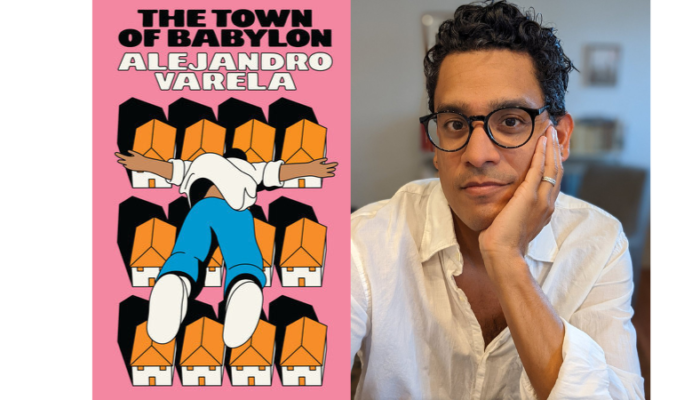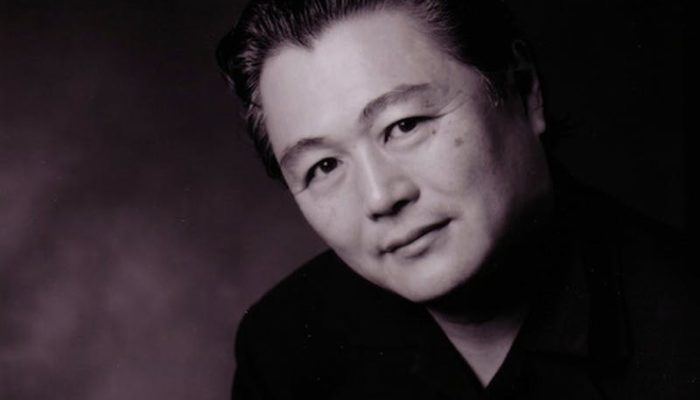This is the first of two essays that reflect on what has happened in the months since the trial of George Zimmerman. You can read Apogee’s original response to the not guilty verdict here.
by Melody Nixon, Editor-at-Large
Have we already forgotten about Trayvon Martin?
There’s a kind of disbelief that is so strong it makes you wish you didn’t have a body. When I first learned of the not guilty verdict I was punched in the gut with horror and surprise. The deep horror of Trayvon Martin’s story – and George Zimmerman’s story – is tied so inherently to the body: First, to Trayvon’s body with darker skin, with smaller frame than George’s, without armor. Secondly, to George’s body, to the car it sat in, the gun it held, the property it thought it was defending. W.E.B. DuBois wrote, “How does it feel to be a problem? To have your very body and the bodies of your children to be assumed to be criminal, violent, malignant?” How does it feel, too, to be consumed and distorted by your own power? What malignancy, crime and violence wait there?
The horror of this story is tied in an indirect but very real way to my own body. My white female body, my foreigner’s body, with its lighter skin and its eyes that have watched and recorded injustices happen all around me throughout my life, and not so often to me. My body has been a caring body and has spoken out, but it has also explained away, it has dismissed, it has found reasons for not looking. It has found reasons to not give up its privilege, while commenting on it. That too, has its own hurt associated with it.
Shellie Zimmerman’s recent accusation of domestic battery, and her admission that she is “doubtful” of her husband’s innocence, has brought Zimmerman back to the forefront of public consciousness. But what about Trayvon himself? Have we forgotten about him, his face, his person, his body?
The answer to that question might vary according to the person with whom you’re speaking. For many white people there’s no pressing need to remember Trayvon, because what happened on February 26th last year in Florida is outside the realm of our normal. As Judith Browne Diaris suggests, the Trayvon shooting has already became an historical event in white American public consciousness — a one-off incident that was tragic but not indicative of endemic problems in American culture. The Trayvon case is analogous to the Birmingham 16th Street church bombing at the start of the Civil Rights Movement, which killed four young black girls with impunity (the bombers were not brought to trial until almost a decade later). For many people not involved in the Civil Rights Movement, this bombing was a single, sad tragedy rather than a manifestation of an enduring ideology of violence against black people. But for others – those affected – it was an extreme example of the hatred they faced regularly.
The list of young black men shot and killed while unarmed in America is staggering (see the Stolen Lives project for documentation of over 2000 of these cases). The list of largely white (male) killers acquitted for these murders is even more alarming – to date the killer has been acquitted in 78 percent of Stand Your Ground cases where the victim was of color. This isn’t just an issue in the South – in New York City, so far in 2013 at least twelve people have been fatally shot by the NYPD, including 16-year-old Kimani Gray this past March. For many Americans (like this group at Alabama State University) Trayvon cannot be forgotten because his story is being repeated constantly. His death is another example of daily, experienced racism that ranges in expression from subtle prejudice to outright hatred and brutality. It is yet another example of a society that undervalues the lives of black people and people of color, that dehumanizes the non-white body.
Many astute commentators have been arguing that the George Zimmerman trial was the flawed expression of an inherently biased system. But others continue to assert that outrage over the trial is misdirected, because the trial itself proceeded within the bounds of Florida’s Stand-Your-Ground law, that Zimmerman acted in accordance with that law, and even that the law itself is morally correct. Through this new lens murder, in cold blood, can be seen as an act of patriotic self-defense, an assertion of one’s religious and proprietary power over so-called intruders (generally though, only if the person firing the gun is white). These eschewed power dynamics are evident in the way the trial itself was called the “Trayvon Martin trial,” described by President Obama as “the issue of the Trayvon Martin ruling,” rather than a trial of the perpetrator, George Zimmerman.
Anger is a part of the human condition. All human beings can express fear, love, joy, relief, pride and pain, and anger. Yet expressions of outrage are often dismissed as racially motivated when coming from people of color. When coming from white people in response to an injustice against people of color, outrage is seen as stemming from unnecessary guilt. Black rage over injustice is ruled against, shut down, not allowed. White rage on the other hand, is promoted when it is on the side of power. White rage over any threat to dominant power is tolerated, condoned and encouraged. But white rage over injustice against minorities – through police and neighborhood brutality, the school-to-prison pipeline, unequal unemployment rates, economic disparity, to name just a few examples – is also disallowed, and often dismissed as merely a misguided and overly empathetic response.
When my body feels injustice, there might be shame and guilt attached, but it’s not just the pain of so-called white guilt. As Hari Kondabolu writes on Racialicious, white guilt is a part of white privilege. It is often used as a way to actually abdicate responsibility, and to complain about the burden of “whiteness.” Privilege defines white guilt because when a tragedy happens to the body of a person of color, they don’t have the option of detaching and feeling guilt. They have to act.
This does not mean that real sorrow, heated rage, and actual responsibility cannot and should not be felt by white people when faced with injustice against others. Indeed, why is it that so many majority Americans have been able, and allowed, to express sympathy for Shellie Zimmerman, after recent news coverage? Is this a misdirected outpouring of emotion, prompted by guilt over the implicit condoning of Martin’s murder? Is Shellie somehow a more acceptable victim than Trayvon, because the idea of women being oppressed by men is more comfortable and acceptable to us than the idea of black men being oppressed by white men? In this case, there have been no calls from men to other men to stop expressing their “male guilt.”
There is a need and a prerogative for white people moved by injustice to speak out and to encourage others to see the racism around us. Racial equality hasn’t been achieved, and ignoring this fact will not make it go away. (Although, the Supreme Court recently decided, in a blindly racist move, that racism in America is dead). By all accounts and measures, the inequality is getting worse – the foreclosure crisis, to name one of so many examples, has brought “the gap between white and black wealth to a staggering 20:1 ratio.” We might lack the language to discuss race, and feel shame or fear we won’t bring up the subject in the right way, but labeling a reaction as guilt is not the way out. It prompts us to neatly package up and dismiss our feelings, ignoring the very responsibility involved.
There are white voices out there making a difference. Peggy McIntosh’s classic “White Privilege checklist” simply, stunningly outlines how racial privilege plays out in daily life. Last week Sarah Milstein wrote of the “Five Ways White Feminists Can Address Our Own Racism.” Kyle “Guante” Tran Myhre offers suggestions for awareness-raising, writing in a heartfelt response to Trayvon’s murder: “When people of color share personal stories about racism, our immediate response has to stop being “but I’m not like that.” Just listen. Don’t make someone else’s oppression about you and your feelings.”
I realize that in the days leading up to the not guilty verdict I was viewing the Zimmerman case from a position of privilege – the privilege of being able to choose whether or not to become emotionally involved. “As white people,” writes Tran Myhre, “we have the option of not caring. Many don’t.” I learned that many black people already had accepted the idea that Zimmerman would be acquitted before the verdict was read aloud on July 13th. This level of injustice is an actual reality for black America. For me it’s not. And when I really, honestly think about that, I feel a disgust that does not arise from guilt or shame, but indignation – the indignation that I am part of a society that treats a huge part of itself with aggression, violence, hatred, and brutality.
I think often of the quote attributed to Aboriginal Australian activist Lilla Watson, (who in fact said the quote was communal, born of a collective process): “If you have come here to help me, you are wasting our time. But if you have come because your liberation is bound up with mine, then let us work together.” Watson and her group were pointing to the fact that injustices against any one part of our society ultimately impact everyone.
If I say we have already forgotten about Trayvon Martin, to whom does the ‘we’ refer? The ‘we’ in this case assumes privilege. The ‘we’ refers to being able to forget. The ‘we’ refers to those of us who can afford to forget about him, because there is no real, daily threat of physical violence against our bodies because of the way we look. ‘We,’ meaning ‘I,’ don’t have to worry about my own brothers being targeted and shot — by police or ordinary, everyday citizens with too much power and too little awareness — for their appearance, because there is no ongoing, mutating struggle for power over my own brothers’ skin. Because I’m a person, I do worry about my friends. I worry about my friends’ brothers, and their families. I don’t feel guilty, I feel angry, and worried. I feel responsible. We are.
Further Reading:
“Racism is Every American’s Problem,” Salon
“George Zimmerman Breaks Silence on ‘Hannity’,” Fox News
“7 Stages of White Identity,” Christena Cleveland
//






